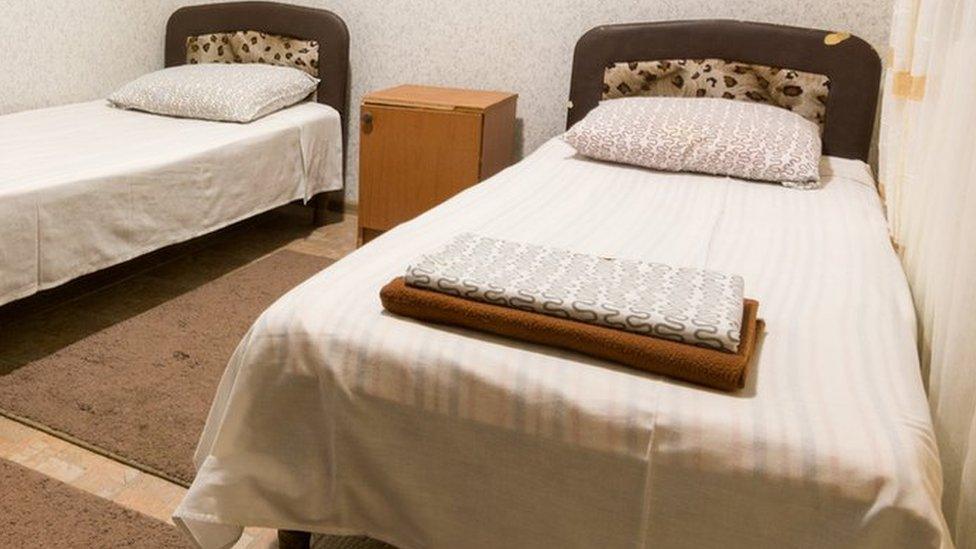Housing homeless in hotels tops £100,000 in Gloucestershire
- Published
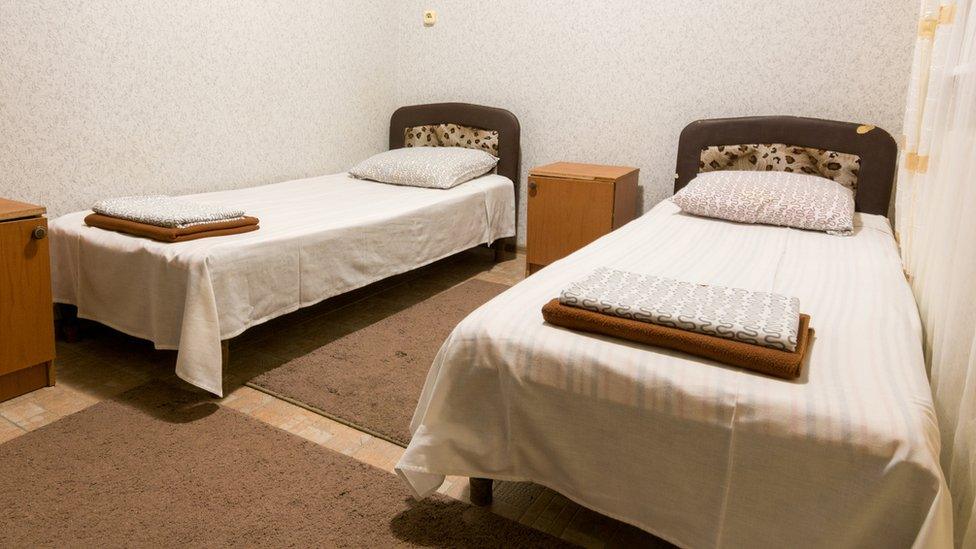
Since 2016 Gloucester City Council has spent £69,000 on housing people in hotels
More than £100,000 has been spent by local authorities in Gloucestershire since January 2016 putting up homeless people in hotels.
The number of homeless households living in publicly paid-for hotels is now more than 700, up from 582 in 2015.
The councils involved say they are using hotels because they are running out of other options, such as hostels.
Nationally, the number of households in temporary accommodation has grown from 49,000 in 2011 to 77,000.
The National Audit Office found homelessness is costing the country more than £1bn a year.
Brenda Morgan from Tewkesbury and her 15-year-old daughter Jasmine were put up in a Travelodge when they had nowhere else to go. They have since been offered a house.
However Ms Morgan said the situation had been "a complete nightmare" and "extremely stressful".
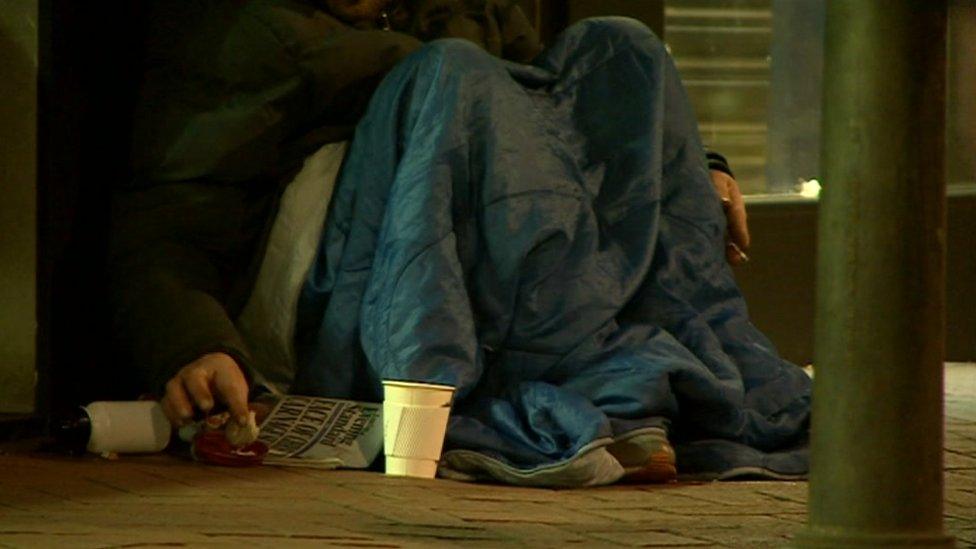
The National Audit Office found homelessness is costing the country more than £1bn a year.
Since January 2016, Gloucester City Council has spent £69,000 on housing people in hotels alone.
Dave Kinghorn, of Gloucester City Mission, said not enough houses were being built to meet demand and people were "trapped in a cycle of temporary accommodation".
'Unpredictable nature'
Conservative Tewkesbury MP Laurence Robertson believes part of the problem is that many landlords refuse to accept people claiming housing benefit.
He said: "In order to give landlords reassurance perhaps the rent can be paid directly to them. I certainly think it's something that should be considered."
Cheltenham Borough Council said the "unpredictable nature" of homelessness "sometimes necessitates using local hotels as emergency accommodation".
And Gloucester City Council said it was trying to tackle the problem by focussing on preventing homelessness and offering services to "help get people off the streets and support them".
- Published14 November 2017
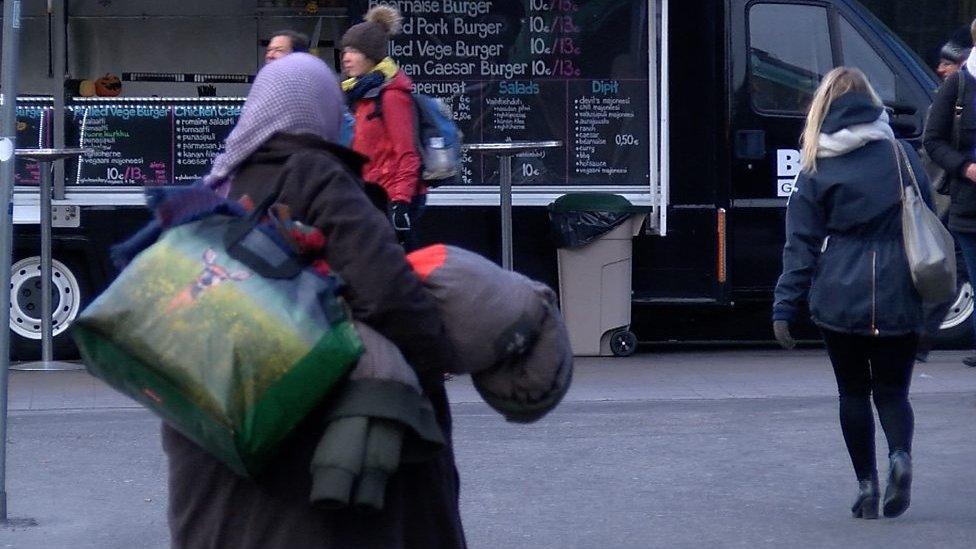
- Published8 November 2017
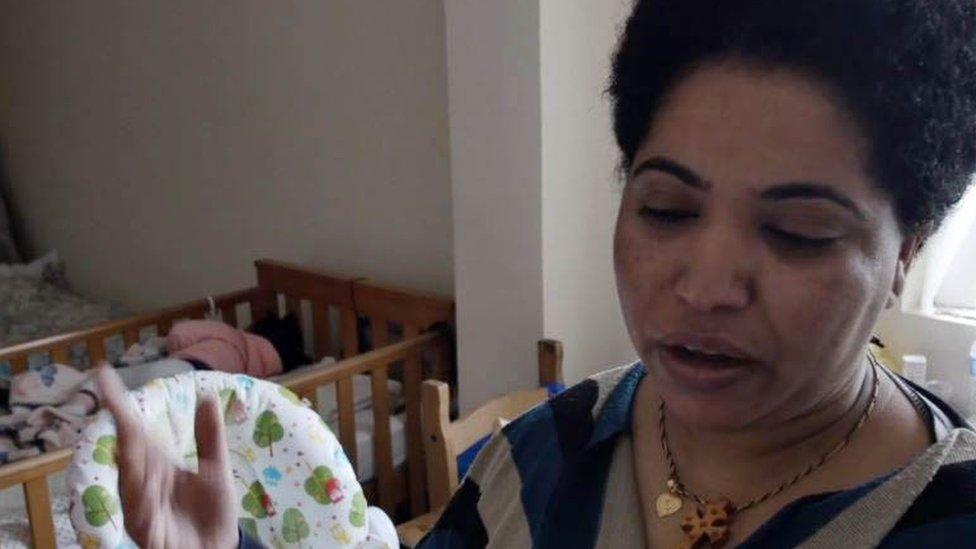
- Published26 October 2017
